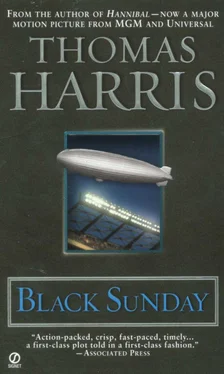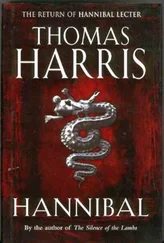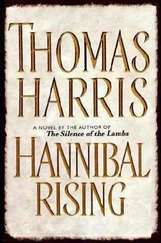“Kabakov must die,” Fasil said, his voice rising.
“It’s not just revenge, either. You’re afraid that if you don’t get him while he’s injured, sooner or later he’ll come to see you in the middle of the night.”
The word afraid hung in the air between them. Fasil was exerting a tremendous effort to hold his temper. An Arab could swallow a toad more easily than an insult. Dahlia moved quietly to the coffeepot, breaking their eye contact. She poured a cup and stood leaning against the counter, her behind firmly against the drawer containing the butcher knives.
When Fasil spoke, his throat seemed very dry. “Kabakov is the best they have. If he dies, he will be replaced, true, but it will not be the same. Let me point out, Mr. Lander, that Muzi was destroyed because he had seen you. He had seen your face and your”—Fasil’s Arab tongue could be artful when he wished; he hesitated just long enough for Lander to anticipate the word hand, then diverted the sentence with what appeared to be tact—“your accent was known to him. Besides, are we not all marked with our wounds?” He tapped the scar on his cheek. Lander said nothing, so Fasil continued. “Now we have a man who knows Dahlia on sight. There are places where he might find her picture.”
“Where?”
“My picture is in the alien registry. I was well disguised in that one,” she said. “But in the annuals of the American University at Beirut—”
“School annuals? Come on, he’d never—”
“They have done it before, Michael. They know we are often recruited there and at the university in Cairo. Many times the pictures are taken and the annual published before a person becomes involved in the movement. He will be looking.”
“If Dahlia is identified, her picture will be circulated,” Fasil added. “When the time comes for you to strike, there will be Secret Service all around—if the president attends.”
“He’ll attend, he’ll attend. He’s said he would attend.”
“Then Secret Service likely will come to the airfield. They might have seen Dahlia’s picture, perhaps a picture of me, probably a description of you,” Fasil said. “All because of Kabakov—if he is allowed to live.”
“I will not risk you or Dahlia being captured,” Lander snapped. “It would be stupid to go myself.”
“That is not necessary,” Dahlia said. “We can do it by remote control.” She was lying.
At Long Island College Hospital, Rachel had to show her identification at two federal checkpoints before she could accompany Moshevsky to Kabakov’s floor.
Kabakov awakened at the slight sound of the opening door. She crossed the dark room and put her hand on his cheek, felt his eyelashes brush her hand, knew he was awake.
“David, I’m here,” she said.
Six hours later Corley returned to the hospital. Visiting hours had begun and patients’ relatives were carrying flowers down the halls and conferring in worried groups outside the doors where the signs said NO VISITORS. NO SMOKING. OXYGEN IN USE.
Corley found Moshevsky seated on a bench outside Kabakov’s room eating a Big Mac hamburger. Beside him in a wheelchair was a girl of about eight. She also was eating a Big Mac.
“Kabakov asleep?”
“Bathing,” Moshevsky said, his mouth full.
“Good morning,” the child said.
“Good morning. When will he be finished, Moshevsky?”
“When the nurse finishes scrubbing him,” the child said. “It tickles. Did a nurse ever bathe you?”
“No. Moshevsky, tell her to hurry up. I’ve got to—”
“Would you like a bite of this hamburger?” the child said. “Mr. Moshevsky and I send out for them. The food here is terrible. Mr. Moshevsky won’t let Mr. Kabakov have a hamburger. Mr. Kabakov said some very bad words about it.”
“I see,” Corley said, biting his thumbnail.
“I have a burn just like Mr. Kabakov.”
“I’m sorry to hear it.”
She gingerly leaned sideways in her wheelchair to take some french-fried potatoes from a sack in Moshevsky’s lap. Corley opened the door, stuck his head in, spoke briefly to the nurse and withdrew again. “One leg to go; he muttered. ”One leg to go.”
“I was cooking, and I spilled a pan of hot water on myself,” the child said.
“I beg your pardon?”
“I said I was cooking, and I burned myself with some hot water.”
“Oh, I’m sorry.”
“I was telling Mr. Kabakov, the same thing happened to him you know, I was telling him that most home accidents happen in the kitchen.”
“You’ve been talking to Mr. Kabakov?”
“Sure. We watched the softball game on the playground across the street from his window. They play before school every morning. I can just see a brick wall from the window in my room. He knows some pretty good jokes. Want to hear one?”
“Thank you, no. He’s told me a few already.”
“I have one of those tent beds too, and—”
The nurse came out into the hall carrying a basin of water. “You can go in now.”
“Good,” the child said.
“Wait, Dotty,” Moshevsky rumbled. “Stay with me. We haven’t finished these chips.”
“French fries,” she said.
Corley found Kabakov propped up in bed. “Now that you’re clean, here’s what we have. We got warrants for the Leticia. Three crew members saw the boat. Nobody remembers the numbers, but they would be fake anyway. We got a little paint where they scraped the side of the ship. It’s being analyzed.”
Kabakov made a small gesture of impatience. Corley ignored it and went on. “The electronics people talked to the radar operator on the Coast Guard cutter. They think the boat was wood. We know it’s fast. We’re guessing it has turbocharged diesels from the description of the sound. It adds up to a smuggler’s boat. Sooner or later we’ll find it. It had to be built somewhere, at a very good yard.”
“What about the American?”
“Nothing. This country is lousy with them. We’ve got the Leticia crewmen working with an Identikit trying to make up a composite of the man who came over on the ship. We’re having to work through an interpreter, though. It’s slow going. ‘Eyes like a pig’s ass,’ they tell us. Descriptions like that. I’ll get you an Identikit and you can do one on the woman. Lab’s working on the Madonna.”
Kabakov nodded.
“Now, I’ve got a medevac laid on for eleven thirty. We’ll leave here at eleven, drive to the Marine Air Terminal at La Guardia—”
“May I talk to you, Mr. Corley?” Rachel spoke from the doorway. She carried Kabakov’s X-rays and charts and wore her stiffest white coat.
“I could have gone to the Israeli mission already,” Kabakov said. “You couldn’t touch me there. Talk to her, Corley.”
Half an hour later, Corley spoke to the hospital administrator, who spoke to the hospital’s public information officer, who was trying to leave early on this Friday. The information officer stuck a memo for the press under the telephone and did not bother to post the patient condition book.
The television stations, putting together their six o‘clock news, called at midafternoon to check on the victims of various disasters. Referring to the memo, the clerk told them “Mr. Kabov” had been medevaced to Brooke Army Hospital. It was a crowded news day. None of them used the story.
The New York Times, thorough as always, prepared a brief item on Mr. Kabov being moved. The Times’s call was the last and the memo was thrown away. The first edition of the Times does not appear on the street until ten thirty p.m. By then it was too late. Dahlia was on the road.
THE IRT EXPRESS TRAIN RUMBLEDunder the East River and stopped in the Boro Hall station near Long Island College Hospital. Eleven nurses, due to report at eleven thirty p.m. for the overnight shift, got off the train. By the time they had climbed the stairs to the street, they numbered an even dozen. The women moved in a tight group along the dark Brooklyn sidewalk, turning their heads only slightly to scan the shadows with the keen survival instincts of city women. A wino was the only other person visible. He swayed toward them. The nurses had sized him up from twenty-five yards away and, pocketbooks shifted to their inboard arms, they skirted him and passed on, leaving in the air a pleasant scent of toothpaste and hairspray that he could not appreciate because his nose was stopped up. Most of the hospital windows were dark. An ambulance siren wailed and wailed again, louder this time.
Читать дальше












